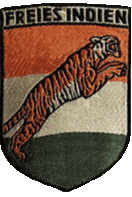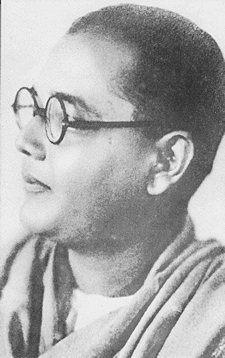
|
||||||||||||||||

|
Sample PagesPlease Select a Chapter from the menu below
Chapter 1: Subhas Chandra Bose and the Free India Centre
Bose in 1931 as Mayor of Calcutta. (Netaji Research Bureau) On 2nd July 1940 Bose was arrested for sedition the day before he was to lead a march in Calcutta to destroy a monument which was dedicated to the 146 British men and women alleged to have died in the infamous "Black Hole” in 1756. It was during this period of incarceration that Bose became convinced of three things:
The last of these three points was the most important. Subhas Chandra Bose was now acting in accordance with the old Arab adage: "There are three kinds of friend: your friend; the friend of your friend and the enemy of your enemy, who is also your friend."In short, Bose now saw the war between Britain and Germany as an opportunity to advance the cause of India's independence from the British Empire.
|
What others say about the book: "a most valuable and timely contribution to the literature of the war ... does much to redress the tabloid version of the Second World War the world has accepted" Mihir Bose, Author, Journalist, Broadcaster, former BBC Edito and Biographer of Subhas Chandra Bose. "A priori we never really know what will lead to success: When all is said and done, the attempt to set up an Indian Legion certainly seemed a worthwhile effort for the Indian side and, for probably other reasons, for the various German actors, as well. I sincerely hope that this book will be of interest to many people concerned with the topic of Indo-German relations in a historic perspective and with this little-known part of British colonial history. " Prof. Dr. Anita B. Pfaff, daughter of |
||||||||||||||
|
|
||||||||||||||||